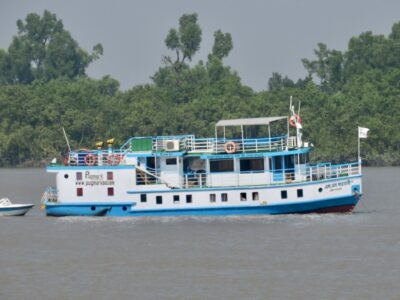
Sustainability Management (SUMA) alum Watson Millison hails from the San Francisco Bay Area, which helped inspire him to pursue a career in sustainability. Prior to Columbia, Watson worked in the third-party sustainability certification world, where he certified B Corporations at B Lab and coordinated the certification process at Green Seal. As a part-time SUMA student, he worked at Schneider Electric in energy and sustainability services. Watson was attracted to the program’s quantitative and management coursework, as well as the opportunity to work on real-world projects with the goals of advancing professionally and breaking into the corporate sustainability world. His SUMA coursework has come in handy now as a member of the corporate sustainability team at JetBlue Airways.
What is your current job and what are the responsibilities associated with your position?
I am a senior analyst on the Corporate Sustainability team at JetBlue Airways. My responsibilities include managing the onboard recycling program and other waste initiatives, reporting on various sustainability platforms, assisting with building sustainability into our larger Investor Relations narrative, and managing our crewmember volunteer farm at JFK Airport.
Do your current job responsibilities align with the professional goals that you originally had when you began the SUMA program?
Absolutely. My goal was to join an in-house sustainability team where I could affect change at a large scale. I always was passionate about sustainability, but truly became inspired once I learned that could have a major impact.
What has been your biggest challenge associated with sustainability in your current position?
Strategically prioritizing multiple projects when there are time and budget constraints, while also making the most impact system-wide.
What has been your biggest accomplishment associated with sustainability in your current position?
We just released our 2017 ESG [Environmental, Social and Governance] report on April 23rd, where we used the Sustainability Accounting Standards Board framework and introduced climate-related financial risk disclosures from the Task Force on Climate-related Financial Disclosures.
What skills from the SUMA program have proven useful to your current position?
The ability to communicate strategically, and build the business case for sustainability.
What was your favorite class in the SUMA program and why?
My favorite class was Corporate Sustainability Reporting and Strategy, as I truly enjoyed the practical experience of writing a Global Reporting Initiative report for an actual company.
What tips do you have for your fellow students who are looking for a job in sustainability?
Pick a sector of the industry that interests you, figure out who the major players are and cast a wide net when it comes to companies, as the industry continues to mature. Effectively communicate why you want to work in sustainability, be able to quantify and provide a business case for implementing a solution, and put yourself out there when it comes to networking at happy hours, panels and industry events.
What do you think is the most beneficial aspect of the SUMA program with regard to your career?
I really am grateful for the opportunity to learn from fantastic professors that I still keep in touch with. Take advantage of getting to know your classmates (and professors)—they are your network!
The M.S. in Sustainability Management, co-sponsored by the Earth Institute and Columbia’s School of Professional Studies, trains students to tackle complex and pressing environmental and managerial challenges. Visit our website to learn more.



